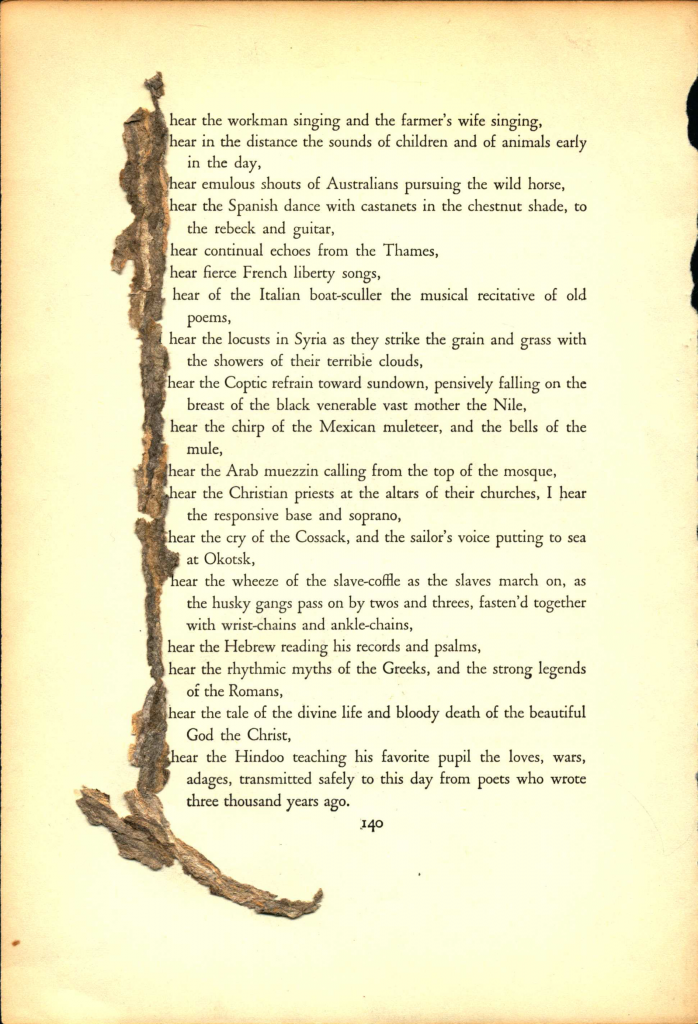
By DA ’22
hear the workman singing and the farmer’s wife singing,
hear in the distance the sounds of children and of animals early
in the day, hear emulous shouts of Australians pursuing the wild horse,
hear the Spanish dance with castanets in the chestnut shade, to
the rebeck and guitar,
hear continual echoes from the Thames,
hear fierce French liberty songs,
hear of the Italian boat-sculler the musical recitative of old
poems,
hear the locusts in Syria as they strike the grain and grass with
the showers of their terrible clouds,
hear the Coptic refrain toward sundown, pensively falling on the
breast of the black venerable vast mother the Nile,
hear the chirp of the Mexican muleteer, and the bells of the mule,
hear the Arab muezzin calling from the top of the mosque,
hear the Christian priests at the altars of their churches, I hear the
responsive base and soprano,
hear the cry of the Cossack, and the sailor’s voice putting to sea
at Okotsk,
hear the wheeze of the slave-coffle as the slaves march on, as
the husky gangs pass on by twos and threes, fasten’d together
with wrist-chains and ankle-chains,
hear the Hebrew reading his records and psalms,
hear the rhythmic myths of the Greeks, and the strong legends
of the Romans,
hear the tale of the divine life and bloody death of the beautiful
God the Christ,
hear the Hindoo teaching his favorite pupil the loves, wars,
adages, transmitted safely to this day from poets who wrote
three thousand years ago.